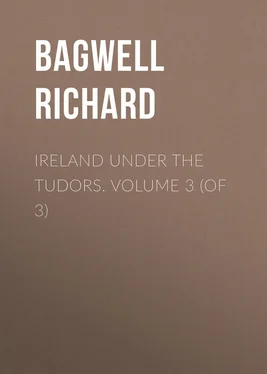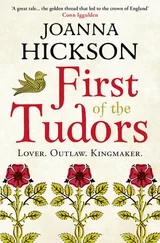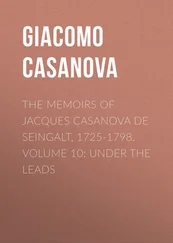Richard Bagwell - Ireland under the Tudors. Volume 3 (of 3)
Здесь есть возможность читать онлайн «Richard Bagwell - Ireland under the Tudors. Volume 3 (of 3)» — ознакомительный отрывок электронной книги совершенно бесплатно, а после прочтения отрывка купить полную версию. В некоторых случаях можно слушать аудио, скачать через торрент в формате fb2 и присутствует краткое содержание. Жанр: foreign_antique, foreign_prose, на английском языке. Описание произведения, (предисловие) а так же отзывы посетителей доступны на портале библиотеки ЛибКат.
- Название:Ireland under the Tudors. Volume 3 (of 3)
- Автор:
- Жанр:
- Год:неизвестен
- ISBN:нет данных
- Рейтинг книги:3 / 5. Голосов: 1
-
Избранное:Добавить в избранное
- Отзывы:
-
Ваша оценка:
- 60
- 1
- 2
- 3
- 4
- 5
Ireland under the Tudors. Volume 3 (of 3): краткое содержание, описание и аннотация
Предлагаем к чтению аннотацию, описание, краткое содержание или предисловие (зависит от того, что написал сам автор книги «Ireland under the Tudors. Volume 3 (of 3)»). Если вы не нашли необходимую информацию о книге — напишите в комментариях, мы постараемся отыскать её.
Ireland under the Tudors. Volume 3 (of 3) — читать онлайн ознакомительный отрывок
Ниже представлен текст книги, разбитый по страницам. Система сохранения места последней прочитанной страницы, позволяет с удобством читать онлайн бесплатно книгу «Ireland under the Tudors. Volume 3 (of 3)», без необходимости каждый раз заново искать на чём Вы остановились. Поставьте закладку, и сможете в любой момент перейти на страницу, на которой закончили чтение.
Интервал:
Закладка:
Richard Bagwell
Ireland under the Tudors. Volume 3 (of 3) / With a Succinct Account of the Earlier History
PREFACE TO THE THIRD VOLUME
By a mistake which was not the author’s, the title-pages of its first instalment described this book as being in two volumes. A third had, nevertheless, been previously announced, and this promise is now fulfilled. The Desmond and Tyrone rebellions, the destruction of the Armada, the disastrous enterprise of Essex, and two foreign invasions, have been described in some detail; and even those who speak slightingly of drum and trumpet histories may find something of interest in the adventures of Captain Cuellar, and in the chapter on Elizabethan Ireland.
A critic has said that your true State-paper historian may be known by his ignorance of all that has already been printed on any given subject. If this wise saying be true, then am I no State-paper historian; for the number of original documents in print steadily increases as we go down the stream of time, and they have been freely drawn upon here. But by far the larger part still remains in manuscript, and the labour connected with them has been greater than before, since Mr. H. C. Hamilton’s guidance was wanting after 1592. Much help is given by Fynes Moryson’s history. Moryson was a great traveller, whose business it had been to study manners and customs, who was Mountjoy’s secretary during most of his time in Ireland, and whose brother held good official positions both before and after. Much of what this amusing writer says is corroborated by independent evidence. Other authorities are indicated in the foot-notes, or have been discussed in the preface to the first two volumes. Wherever no other collection is mentioned, it is to be understood that all letters and papers cited are in the public Record Office.
It has not been thought generally necessary to give the dates both in old and new style. The officials, and Englishmen generally, invariably refused to adopt the Gregorian calendar, but the priests, and many Irishmen who followed them, naturally took the opposite course. As a rule, therefore, the chronology is old style, but a double date has been given wherever confusion seemed likely to arise.
It has often been said that religion had little or nothing to do with the Tudor wars in Ireland, but this is very far from the truth. It was the energy and devotion of the friars and Jesuits that made the people resist, and it was Spanish or papal gold that enabled the chiefs to keep the field. This volume shows how violent was the feeling against an excommunicated Queen, and, whether they were always right or not, we can scarcely wonder that Elizabeth and her servants saw an enemy of England in every active adherent of Rome.
At first the Queen showed some signs of a wish to remain on friendly terms with the Holy See, but she became the Protestant champion even against her own inclination. Sixtus V. admired her great qualities, and invited her to return to the bosom of the Church. ‘Strange proposition!’ says Ranke, ‘as if she had it in her power to choose; as if her past life, the whole import of her being, her political position and attitude, did not, even supposing her conviction not to be sincere, enchain her to the Protestant cause. Elizabeth returned no answer, but she laughed.’
The Elizabethan conquest of Ireland was cruel mainly because the Crown was poor. Unpaid soldiers are necessarily oppressors, and are as certain to cause discontent as they are certain to be inefficient for police purposes. The history of Ireland would have been quite different had it been possible for England to govern her as she has governed India – by scientific administrators, who tolerate all creeds and respect all prejudices. But no such machinery, nor even the idea of it, then existed, and nothing seemed possible but to crush rebellion by destroying the means of resistance. It was famine that really ended the Tyrone war, and it was caused as much by internecine quarrels among the Irish as by the more systematic blood-letting of Mountjoy and Carew. The work was so completely done that it lasted for nearly forty years, and even then there could have been no upheaval, but that forces outside Ireland had paralysed the English Government.
My best thanks are due to the Marquis of Salisbury for his kindness in giving me access to the treasures at Hatfield, and to Mr. R. T. Gunton for enabling me to use that privilege in the pleasantest way.
Marlfield, Clonmel, March 17, 1890.CHAPTER XXXVI.
REBELLION OF JAMES FITZMAURICE, 1579
Sidney’s departure had been partly delayed by a report that Stukeley’s long-threatened invasion was at last coming. The adventurer had been knighted in Spain, and Philip had said something about the Duchy of Leinster. The Duke of Feria and his party were willing to make him Duke of Ireland, and he seems to have taken that title. At Paris Walsingham remonstrated with Olivares, who carelessly, and no doubt falsely, replied that he had never heard of Stukeley, but that the king habitually honoured those who offered him service. Walsingham knew no Spanish, and Olivares would speak nothing else, so that the conversation could scarcely have serious results. But the remonstrances of Archbishop Fitzgibbon and other genuine Irish refugees gradually told upon Philip, and the means of living luxuriously and making a show were withheld. ‘The practices of Stukeley,’ wrote Burghley to Walsingham, ‘are abated in Spain by discovery of his lewdness and insufficiency;’ and he went to Rome, where the Countess of Northumberland had secured him a good reception. ‘He left Florida kingdom,’ said Fitzwilliam sarcastically, ‘only for holiness’ sake, and to have a red hat;’ adding that he was thought holy at Waterford for going barefooted about streets and churches. ‘It is incredible,’ says Fuller, ‘how quickly he wrought himself through the notice into the favour, through the court into the chamber, yea, closet and bosom, of Pope Pius Quintus.’ An able seaman, Stukeley was in some degree fitted to advance the Pontiff’s darling plan for crushing the Turks. The old pirate did find his way to Don John of Austria’s fleet, and seems to have been present at Lepanto. His prowess in the Levant restored him to Philip’s favour, and he was soon again in Spain, in company with a Doria and in receipt of 1,000 ducats a week. 1 1 Strype’s Annals , Eliz. lib. i. ch. i. and ii. i. Walsingham to Cecil, February 25, 1571, and Burghley to Walsingham, June 5, both in Digges’s Complete Ambassador . Lady Northumberland to Stukeley, June 21, 1571, in Wright’s Elizabeth . Answers of Martin de Guerres, master mariner, February 12, 1572; Examination of Walter French, March 30; report of John Crofton, April 13.
There was much movement at the time among the Irish in Spain, and the air was filled with rumours. Irish friars showed letters from Philip ordering all captains to be punished who refused them passages to Ireland, and the Inquisition was very active. One Frenchman was nevertheless bold enough to say that he would rather burn than have a friar on board, and those who sought a passage from him had to bestow themselves on a Portuguese ship. In 1575 Stukeley was again at Rome, and in as high favour with Gregory XIII. as he had been with his predecessor. The Pope employed him in Flanders, where he had dealings with Egremont Radcliffe. That luckless rebel had bitterly repented; but when he returned and offered his services to the queen, she spurned them and bade him depart the realm. From very want, perhaps, he entered Don John’s service, and when that prince died he was executed on a trumped-up charge of poisoning him.
Читать дальшеИнтервал:
Закладка:
Похожие книги на «Ireland under the Tudors. Volume 3 (of 3)»
Представляем Вашему вниманию похожие книги на «Ireland under the Tudors. Volume 3 (of 3)» списком для выбора. Мы отобрали схожую по названию и смыслу литературу в надежде предоставить читателям больше вариантов отыскать новые, интересные, ещё непрочитанные произведения.
Обсуждение, отзывы о книге «Ireland under the Tudors. Volume 3 (of 3)» и просто собственные мнения читателей. Оставьте ваши комментарии, напишите, что Вы думаете о произведении, его смысле или главных героях. Укажите что конкретно понравилось, а что нет, и почему Вы так считаете.












